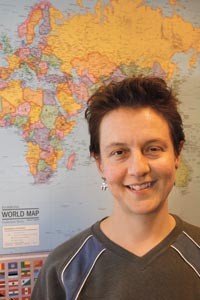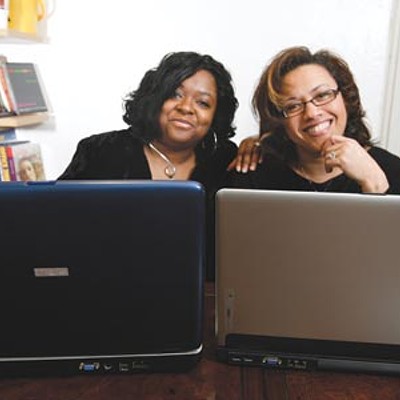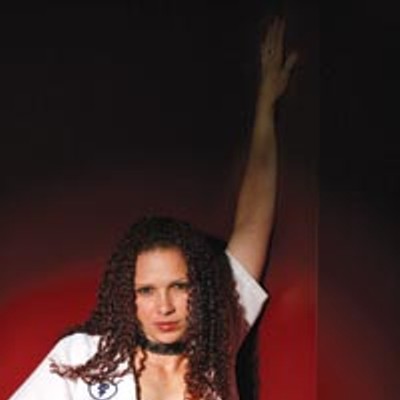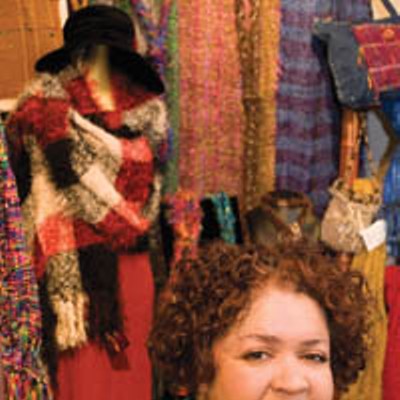Allegra Elson's first-generation Italian-American grandmother asked her to learn Italian. Grad school made her learn Spanish. Now the Squirrel Hill native teaches English as a second language to students at the Greater Pittsburgh Literacy Council in East Liberty. Elson was, in fact, recently recognized as one of the state's Outstanding Teachers of the Year by the Pennsylvania Department of Adult Basic Education
What nationalities are you teaching here?
Let's see. Many Asian: Japanese, South Korean, Chinese, Taiwan. I have students from Italy, I have students from Brazil. Eastern Europe, so Russia, Ukraine. I have students from Iraq, from Somalia, those war-torn countries. Liberia, West Africa, East Africa. So it's a wide range.
Do you sort them into language groups?
I prefer not to, actually. In ESL research, there's something called negotiation of meaning, so that when students are working together and they're maybe working on a problem, they're saying to each other, "What does this mean?" "I think it means this." They're negotiating about the meaning in English, and that helps them learn more.
You work with both refugees and more typical immigrants. How is teaching those groups different?
Well, it's about economic status. It's about education level in their first country. We have refugees, for example, from Liberia, and they speak English in Liberia, but it's a slightly different type of English [and] many people have been in refugee camps for years, so their access to education is limited. They may not have the same type of education as an immigrant who [has] been to all sorts of university classes, but doesn't speak English. For someone who is university-educated, the learning skills are there. A student who had little access to education in their native country, you have to teach how to learn. [So] it takes them longer to progress in English.
How do immigrants view Pittsburgh in terms of whether it is receptive to immigrants?
Many of them like Pittsburgh. They think that it's very clean, it's very green. And some have said, "People here are very friendly." ... Some of my younger students say, "Oh it's a little boring here. There's not much to do." But other people see it as a city that's a small town, that there's lots to do here. "Oh, there's opera, there's symphony, there's the parks, there's all these free programs in the summer."
[But] some have had bad experiences, just with people being rude to them or not taking the time to understand them. Some people, when they hear an accent, they just go click: "Oh, sorry, can't understand you." So I'd say the reception is mixed. We're in a strange time right now in this country in terms of being receptive to immigrants.
Has that national anti-immigrant rhetoric flowed into Pittsburgh?
My impression is it's not as strong here because some people live in this bubble of, "Oh we don't have any immigrants in Pittsburgh." And it's like, yes we do.
... Some students don't want to live here. They don't have the same opportunities or job opportunities. So they're leaving. In particular we see this, for some reason, with African refugees.
Where do they go?
Columbus, Ohio. One of my students told me yesterday, "Here in Pittsburgh I've got one African store. Columbus, there's 50." They're going to Kentucky, which kind of blows my mind. A large contingent of Somali Bantu are moving to Kentucky.
Are they bluegrass fans?
I don't know. In Pittsburgh, there are two different tribes of Somali Bantus, and the one tribe has almost completely picked up and moved to Kentucky. They just don't like the housing here. When they first were resettled here, they went into Homewood and it was very, very difficult for them. There is tension between the African-American community and Africans. That tension, I think, is just because of foreignness. We have a hard time with people who are different.
Have you ever offended a student's nationality in the classroom?
What's more common is that you have students from China and Taiwan, and they will get into it. The Chinese student will say, "You're part of China." And they'll say, "No, we're our own country." I used to teach Serbians, Croatians and Muslims together, Bosnian refugees. I was still a beginning ESL teacher, and the night that I really stepped into it, one of the students said, "Oh, Muslims, they all have harems." And in my attempt to have some type of cultural exchange, I said to [a Muslim] student, "Is that true?" And she just completely blew up. It makes me sad to this day, because she didn't come back to class. So I've learned to be a little more sensitive.
There's prejudices between all sorts of different people. They're in a new city and they're thrown into a classroom with people from all over the world. But, on the other hand, they get to know each other, and I have students who have said to me, "You know, I never knew anybody from Japan before, and I thought I didn't like Japanese people. But this person has become my friend."















